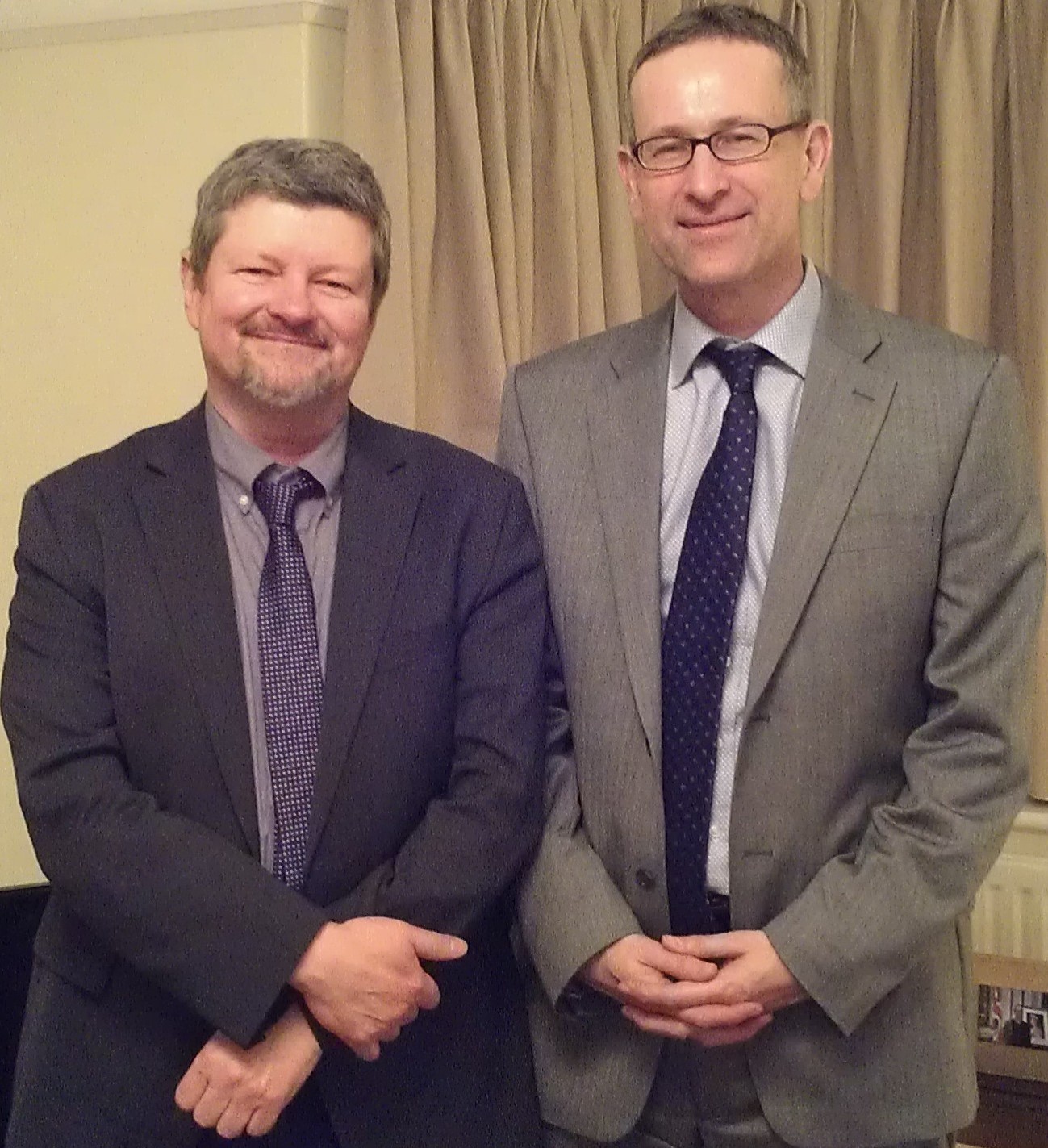The annual ‘Southampton Stonewall Lecture’ explores the rich heritage that is lesbian, gay, bisexual, transgender and queer (LGBTQ) history. It has been organized since 2012 by Professor Mark Cornwall from the History Department to show-case the latest cutting-edge historical research on this theme. The lecture has attracted international speakers covering a wide range of topics, periods and disciplinary approaches. They have included Professors George Chauncey, Laura Doan, Dagmar Herzog, Bruce Smith, and Howard Chiang who gave the lecture in 2021 on the subject of Transtopia in East Asia.
Each lecture has offered an academic approach but one geared also to a broader public. A key purpose is to educate contemporary audiences, academic and public, about the past while also promoting the University of Southampton’s commitment to the principles of equality, diversity and inclusivity. The lecture has become the major event in the University’s celebration of LGBTQ History month each February. The lecture is named after the Stonewall riots which occurred in New York in 1969 and were a watershed moment in furthering gay and lesbian rights. We are also proud to be associated with the UK’s Stonewall charity which in the past 30 years has done so much to advance LGBTQ equality (including the equalisation of the age of consent and major campaigns against homophobia). Our first speaker in 2012 was Angela Mason, the executive director of Stonewall from 1992 to 2002.
The lecture therefore promotes our University’s commitment to equality and inclusivity as well as an educational engagement with the wider community. In recognition of this work, the Stonewall lecture series was short-listed in 2020 for a University of Southampton Vice-Chancellor’s award. Through a greater understanding of discrimination and tolerance through the centuries, we can help to promote tolerance and inclusivity in contemporary British society.
For more information visit the university’s LGBT Research Community website.
Annual Lectures
2024, Professor Jennifer Evans: "Why We Need Queer Kinship Now More Than Ever: Lessons from German History"
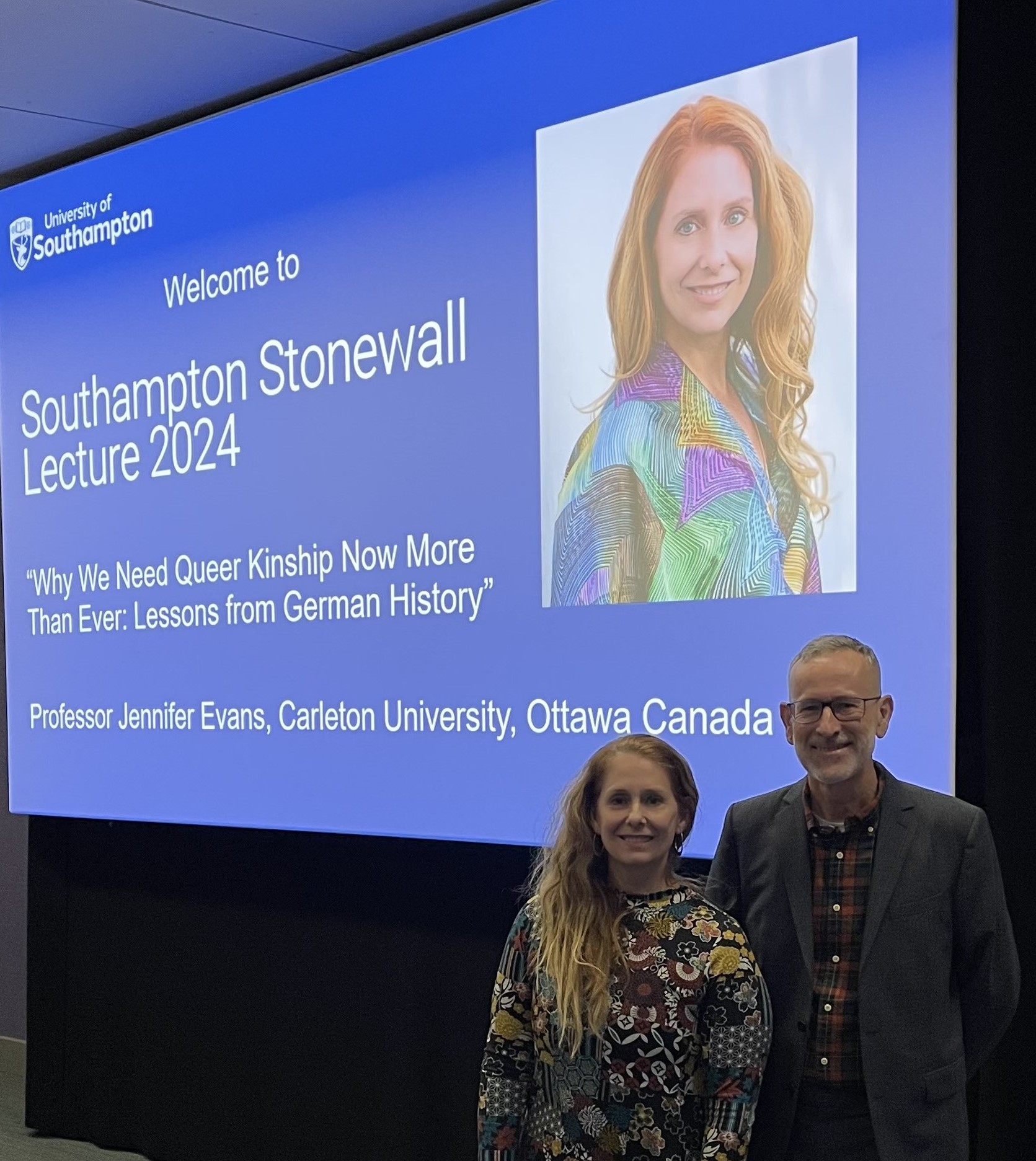
In this lecture, Jennifer Evans proposed a radical rethinking of how we discuss the queer and trans past. Drawing on lessons from modern German history, she argued that in celebrating decriminalisation and the attainment of key social rights, we have forgotten that not everyone benefited equally from these gains, as in fact there were many different forms of solidarity and struggle.
Using kinship as an analytic category allows us to uncover that phenomenon, to seek out the fraught as well as productive ways in which Germans have confronted race, gender nonconformity, and sexuality in everyday life. Professor Evans notably used photography as one novel medium for rethinking these queer entanglements and the challenges faced by those with non-normative sexual identities.
Watch the recording of Professor Jennifer Evans’ lecture on the School of Humanities Youtube channel.
2023, Professor Dan Healey: ‘LGBTQ in a Time of War: The Queer History of the Russian-Ukrainian Conflict’
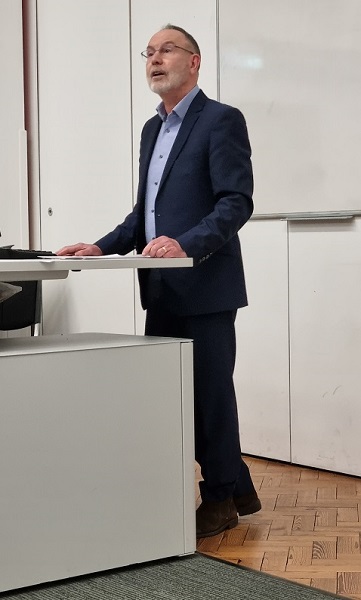
This lecture analysed LGBTQ lives in the broader historical context of the Russian-Ukrainian war. While Vladimir Putin’s war may seem to have little relevance to LGBTQ politics, in Putin’s own statements and decrees he has argued that one aim of the February 2022 invasion was to prevent the spread to Russia and its neighbours of ‘Western’ forms of tolerance for LGBTQ ways of life. Anti-LGBTQ campaigns in the Russian parliament and media have amplified the anti-Western sentiment that drives public support for the war against Ukrainian independence. Dan Healey showed how the Kremlin’s official homophobia evolved over two decades, mirroring the shape-shifting of Putin’s image and methods of rule. After explaining the background of 20th century Russian homophobia (grounded in Stalin’s regime), Healey explored how Putin’s use of state-backed homophobia re-emerged under his leadership. In particular he showed how the historic roots of homophobia could easily resonate with many Russian voters.
You can watch the recording of Dan Healey’s lecture on the School of Humanities Youtube channel.
2020, Jill Liddington: ‘Writing Anne Lister: The Real Gentleman Jack’
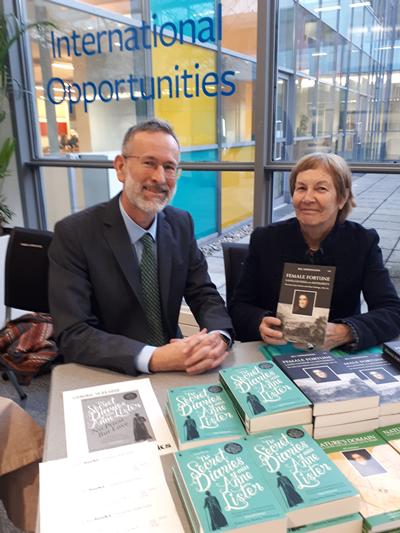
Dr Liddington (University of Leeds) has been a major interpreter of the secret diaries of Anne Lister. Sometimes called the ‘first British lesbian’, Lister (1791-1840) was a true Renaissance woman: Yorkshire landowner, coal mine exploiter, mountaineer, scientist, polyglot, European traveller, trained in the classics as well as being a high Anglican and staunch Tory. Her colourful exploits have been shared with many through the BBC drama series Gentleman Jack. In the lecture Dr Liddington explained the complex task of deciphering the diaries – long passages in code alongside impenetrable handwriting – and their subsequent history and significance for queer heritage. While the diaries were suppressed for 150 years, deemed too shocking for the public gaze, an extra blow came with the Thatcher government’s Clause 28 since this had the effect of silencing publicity about Anne Lister’s homosexuality.
Listen to the recording of her lecture here.
2019, Bruce R. Smith: ‘To Queer or Not to Queer Shakespeare?

‘Queer Shakespeare’? At the time of the Stonewall Riots in 1969 most people would have answered such a question with an astonished ‘What?’ ‘Queer’ was a slur, and Britain’s national bard could not possibly have been one. Fifty years on, the term ‘queer’ has taken on personal, political, and analytical power. From an adjective with a broad meaning, and a noun with a quite specific meaning, ‘queer’ is now a verb. ‘To queer’ something is to question its status, to probe, to reevaluate. In his lecture Professor Smith (U. of Southern California) explored the stages of this transition in the meanings of ‘queer’, giving special attention to the ambiguous status of ‘Shakespeare’. That word could refer to four things: (1) the historical person in Stratford-upon-Avon; (2) the work he produced as a playwright and poet; (3) the author that we imagine from the plays and poems; and (4) the cultural icon that he has become. Each of these entities can be the object of the verb ‘to queer’.
2018, Alison Oram: ‘Queer Beyond London: Culture and Place in English Cities, 1970s-1990s’
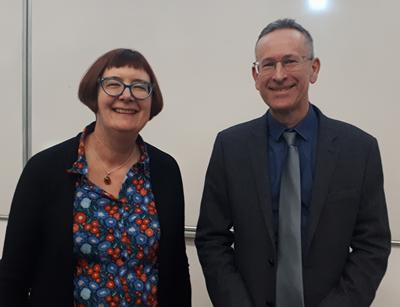
This lecture drew on research from an AHRC funded project, ‘Queer Beyond London’, which explores LGBTQ life in four provincial cities (Manchester, Brighton, Leeds and Plymouth) to challenge the London-centric history of queer life. Alison Oram (Leeds Beckett University) analyzed why queer migration occurred in these cities, the private and public queer culture which developed, and how distinct trajectories of queer life and history evolved. Alison drew on oral history, sociology, and urban geography, complimenting George Chauncey’s lecture in 2013. She especially highlighted: Brighton’s political radicalism; Leeds’ lesbian feminism; and the tolerance which often prevailed in Plymouth due to the city’s links with the military.
2017, Dagmar Herzog: ‘Love and Perversion – The Modern History of Homophobia’
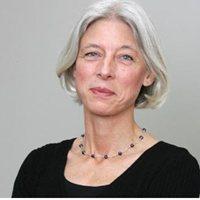
In this lecture Dagmar Herzog (City University of New York) took themes from her latest monograph Cold War Freud (2016) to explore how American psychoanalysts after 1945 did their utmost to stigmatise homosexuality and perpetuate homophobia in the USA. The movement particularly challenged the work of Alfred Kinsey, asserting that his findings on sexuality had nothing to do with love. Only by the 1970s were the psychoanalysts finally in retreat, but by that time many lives had been ruined through their influence in the medical profession. For an interview with Prof Herzog, see LGBT Research Community.
2016, Elise Chenier: ‘Lesbian Life Stories – Stuck in the Past’
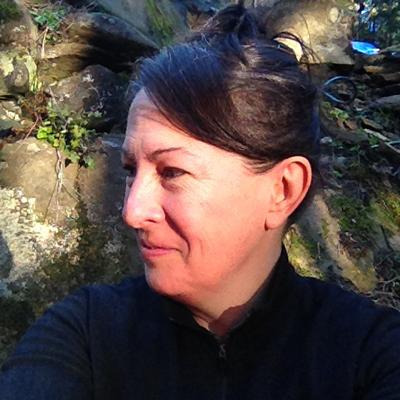
This lecture explored lesbian experience as captured in four decades of oral histories. Prof Chenier (Simon Fraser University, BC) drew on her great expertise as an oral historian, having created her own lesbian archive website (ALOT). The lecture assessed the position of lesbianism and women’s sexuality over the past forty years, drawing on her own life as well as her digital archive in order to show both continuities and breaks with the present. In the Q&A she pressed the highly diverse audience to question their own sexual stereotypes. The Vice-Chancellor also sent a special message of support for Prof Chenier’s lecture as a key display of the university’s commitment to Equality and Diversity.
2015, Richard Parkinson: ‘Glimpses of a Gay World History: From Ancient Egypt to the Modern Museum’
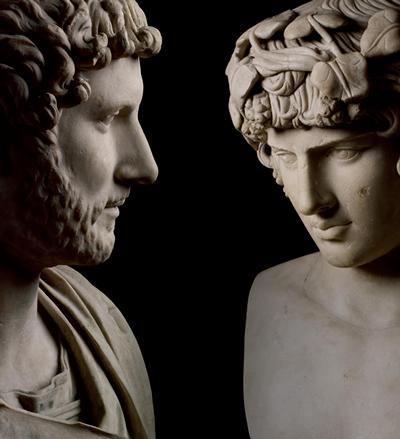
Professor Parkinson (University of Oxford) has worked on same-sex desire in ancient Egyptian culture and literature, exploring the possibilities of a ‘queer philology’. This year’s Stonewall lecture discussed his research on this topic and the wider issue of how and why museums can represent same-sex experiences as integral parts of world cultures. He assessed his own experience in curating a ground-breaking LGBTQ history project at the British Museum, which drew on objects ranging from ancient Egyptian papyri, German ceramics, images by modern artists such as David Hockney and Bhupen Khakhar, and the Merchant Ivory film ‘Maurice’. It resulted in a ‘Little Gay History’ of the world in forty or so objects from a single museum collection.
2014, Laura Doan: ‘On the Entanglements of Queer Memory and History: The Case of Alan Turing’
For LGBTQ and queer-identified people aware of Alan Turing’s sexuality, his arrest in 1952 on charges of ‘gross indecency’ and his barbaric punishment (chemical castration in lieu of prison), the spaces of commemoration take on added resonance, an encounter with the past which historians associate with memory. Not individual memory, but collective memory, the social phenomenon or cultural dimension of what groups remember. In this lecture Professor Laura Doan (University of Manchester) used Turing, recently pardoned by the British government, as a case study to prise memory, time and history apart, while also leaving them intertwined and messy.
